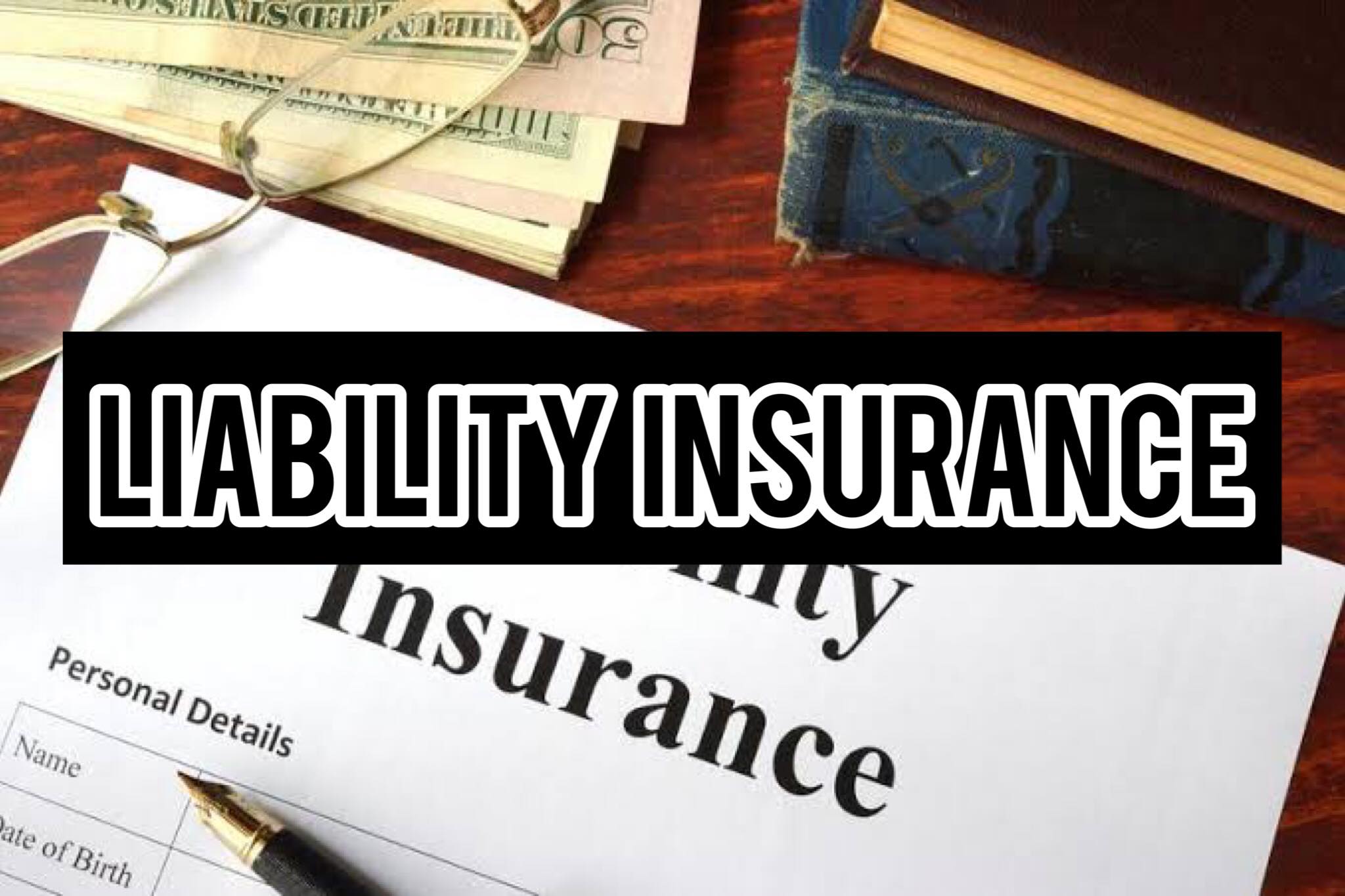What Is Liability Insurance?
Liability insurance is a type of insurance that offers defense against lawsuits brought by victims of injuries and property damage to others. Any legal fees and payouts that an insured party is accountable for in the event that they are held legally liable are covered by liability insurance policies. Liability insurance coverage typically do not cover intentional harm or contractual obligations.
Liability insurance policies compensate third parties, not policyholders, unlike other forms of insurance.
How Liability Insurance Works
When someone is responsible and at blame for another person’s injuries or when an insured party destroys another person’s property, liability insurance is essential. Liability insurance is hence sometimes known as third-party insurance. Even if the insured party is held legally liable, liability insurance does not cover willful or illegal activities. Anybody who operates a business, operates a vehicle, conducts medicine, or practices law—in other words, anyone who could be held liable for losses and/or injuries—takes out insurance. Plans cover both the insured and any third parties who may sustain injuries due to the policyholder’s negligent behavior.
For instance, the majority of states mandate that car owners carry liability insurance as part of their auto insurance contracts to cover damage to other people’s property and injury to other persons in the event of accidents. To protect themselves in the event that a defective product harms consumers or other third parties, a maker of goods may invest in product liability insurance. Company owners can buy liability insurance that protects them in the event that an employee is hurt while conducting business. Liability insurance coverage are also necessary because of the professional judgments that surgeons and doctors make.
High-net-worth individuals (HNWIs) or those with significant assets are more likely to obtain personal liability insurance policies, but anyone whose net worth exceeds the combined coverage limits of other personal insurance policies, such as home and auto coverage, is advised to do so. Even while most carriers provide discounted rates for coverage bundles, the expense of an additional insurance policy isn’t appealing to everyone. Personal liability insurance is regarded as a supplementary policy, and policyholders may be required to carry specific limits on their home and auto policies, which could lead to additional costs.
Although commercial general liability insurance offers protection from the majority of legal hiccups, it does not shield the insured against mistakes and omissions or shield directors and officers from lawsuits. For these situations, businesses need certain regulations, including:
Errors and Omissions Liability Insurance (E&O): An errors and omissions liability insurance policy protects against legal actions brought about by the provision of professional services that are careless or by the failure to carry out professional obligations. Any company that offers a service to a client for a price, including attorneys, accountants, architects, and engineers, should acquire this type of insurance. Criminal prosecution, dishonest or fraudulent behavior, as well as bodily injury claims, are not covered by an E&O coverage. Attorney fees, court costs, and any settlements up to the amount stated by the insurance policy are, nevertheless, paid for by the insured.
Directors and officers (D&O) insurance helps to protect big business executives from financial losses and fines resulting from illegal actions, poor investment choices, neglect of property, disclosure of private information, hiring and firing decisions, conflicts of interest, gross negligence, and other mistakes. Most D&O plans don’t cover fraud or other illegal activities. The company, its location, industry, and loss history all affect premiums.
Also Read: Best Digital Insurance Company
Types of Liability Insurance
Owners of businesses are liable to a variety of liabilities, any of which could result in significant claims against their assets. Every business owner must have an asset protection strategy in place that is based on the availability of liability insurance. The most common types of liability insurance are as follows:
1.Workers’ compensation and employer’s liability insurance are required coverage for employers and shield the company from claims resulting from employee fatalities or injuries.
2. For companies that produce goods for sale on the open market, product liability insurance is necessary. Product liability insurance shields businesses from litigation brought about by injuries or fatalities brought on by their products.
3. With indemnity insurance, a company is shielded against lawsuits alleging carelessness for losses brought on by errors or poor performance.
4. Directors and officers are protected by director and officer liability insurance in the event that the firm is sued. While though organizations often offer some level of personal safety to their employees, some businesses offer additional protection to their management team.
5. Personal liability insurance products called umbrella policies are made to guard against catastrophic losses. When the liability limits of other insurance are reached, coverage often begins.
6. Commercial general liability insurance, commonly referred to as comprehensive general liability insurance, is a common commercial general liability policy. It offers insurance coverage for lawsuits resulting from harm to workers and the general public, property damage caused by an employee, as well as injuries sustained as a result of employees’ negligence. Infringement of intellectual property, slander, libel, contractual obligation, tenant liability, and employment practices liability may also be covered by the policy.
7. Any small or large firm, partnership or joint venture, corporation or association, organization, or even recently acquired enterprise might benefit from comprehensive general liability policies. Bodily injury, property damage, personal and advertising injury, medical costs, and operations and premises liability are all covered under insurance. Insurance companies cover general and compensatory damages in court cases but not punitive damages.
What Are the Differences Between Personal and Business Liability Insurance?
Individuals are protected by personal liability insurance from lawsuits brought over injuries or property damage suffered by third parties while on the insured’s property or as a result of the insured’s activities. Instead, business liability insurance defends the financial interests of organizations and business owners against claims or losses brought about by incidents similar to the one at hand, including product flaws, recalls, etc.
What Is Umbrella Insurance?
Umbrella insurance is extra liability insurance protection that is bought and surpasses the financial limits of the insured’s current home, car, or watercraft insurance. The cost of umbrella coverage typically ranges between $500,000 and $1 million.
How Much Does General Liability Insurance Cost?
According to Insureon, the average monthly cost of general liability insurance is $42. The cost of general liability insurance for 17% of Insureon’s small company clients may be less than that.
The price of general liability insurance coverage varies depending on your industry, region, business size, and the quantity of coverage you require.
By selecting the insurance limits that most closely match your requirements, you may control the cost of general liability insurance. Combining general liability and commercial property insurance under a single policy is practical and economical. But, you can also purchase general liability insurance on your own.
The cost of general liability insurance is influenced by key facets like:
your field of business. General liability insurance is more expensive if your business is high-risk.
the duration of your company’s existence.
Size, location, and building state.
Details of the policy, including deductibles and coverage limits.
the history of insurance claims for your company.
How Much General Liability Insurance Coverage Do I Need?
According to Insureon, the majority of small businesses choose for general liability insurance coverage limits of $1 million per event and $2 million overall. A single general liability insurance claim under this type of policy may be paid up to $1 million, with a $2 million cap on all claims made throughout the policy period. Usually, the policy’s duration is one year.

Sage is a financial/consumer journalist and senior editor, personal finance, of TrendsHQ. EXPERTISE: Personal Finance, Careers, Jobs, Scholarships, and Entertainment.
